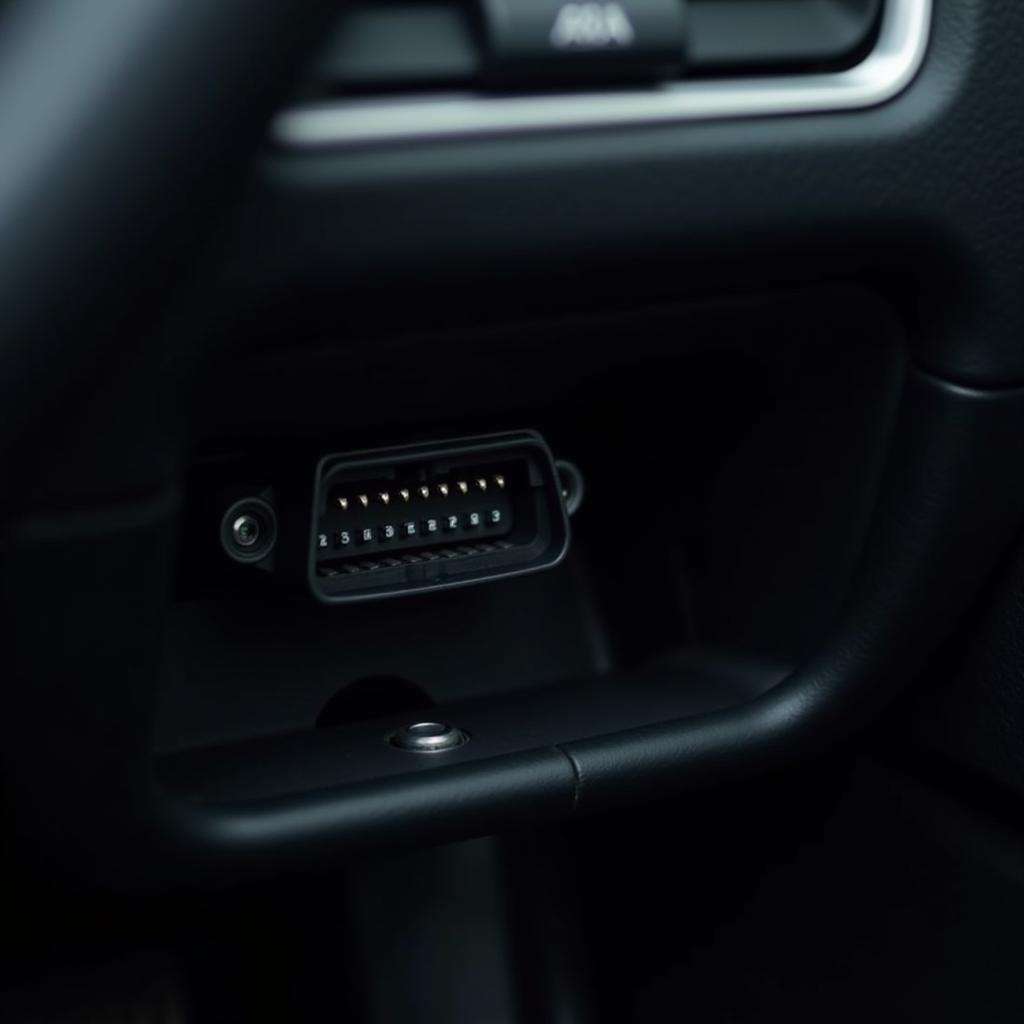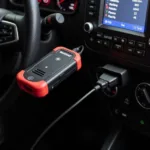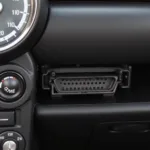OBD2 hack tools have become increasingly popular amongst car enthusiasts and DIY mechanics. These tools offer a way to access and potentially manipulate a vehicle’s onboard computer system, offering a range of possibilities from performance tuning to troubleshooting tricky electrical issues. But what exactly are OBD2 hack tools, and what are the implications of using them?
Understanding OBD2 and Its Potential for Hacking
OBD2, short for On-Board Diagnostics, is a standardized system found in most vehicles manufactured after 1996. It allows mechanics and car owners to connect a diagnostic tool to the vehicle’s computer, retrieving valuable information about its performance and health. While OBD2 was initially designed for emissions testing and diagnostics, its open nature and standardized protocols have paved the way for more advanced applications, including hacking.
OBD2 hack tools, unlike standard OBD2 scanners, go beyond simply reading diagnostic trouble codes (DTCs). They can tap into various control modules within a vehicle’s network, potentially granting access to sensitive data and even allowing for modifications to engine parameters, transmission settings, and other critical systems.
The Allure and Risks of OBD2 Hacking
The potential of OBD2 hack tools is vast, attracting both curious minds and individuals with malicious intent. Let’s explore the various reasons why someone might use these tools:
- Performance Tuning: Enthusiasts often seek ways to enhance their vehicles’ performance. OBD2 hack tools can unlock hidden potential by adjusting engine timing, fuel mapping, and other parameters, potentially boosting horsepower and torque.
- Diagnostics and Troubleshooting: Experienced mechanics and DIY enthusiasts might use advanced OBD2 tools to delve deeper into a vehicle’s systems, accessing live data streams and sensor readings that might not be available through conventional scanners.
- Customization and Feature Modification: Some users leverage OBD2 hack tools to personalize their driving experience. This can range from adjusting comfort features like automatic door locks and lighting to disabling annoying chimes and warnings.
- Security Research and Vulnerability Assessment: Security researchers and ethical hackers utilize OBD2 hack tools to identify and understand vulnerabilities within vehicle systems, contributing to the development of stronger security measures.
However, alongside these legitimate applications, OBD2 hack tools also present inherent risks and ethical concerns:
- Vehicle Damage: Improper use of these tools, especially when modifying critical engine parameters, can lead to significant engine damage or other unforeseen malfunctions.
- Safety Hazards: Tampering with a vehicle’s safety systems, such as airbags or anti-lock brakes, through OBD2 hacking can have severe consequences, potentially jeopardizing the safety of the driver, passengers, and others on the road.
- Security Breaches: As vehicles become increasingly connected, OBD2 hacking could serve as a gateway for malicious actors to gain unauthorized access to sensitive data or even remotely control certain vehicle functions.
- Legal Ramifications: In many jurisdictions, using OBD2 hack tools to tamper with a vehicle’s emissions systems or other regulated components is illegal and can result in fines or other penalties.
Navigating the Ethical and Legal Landscape of OBD2 Hacking
The increasing sophistication and accessibility of OBD2 hack tools necessitate a clear understanding of the ethical and legal boundaries surrounding their use. “OBD2 hacking is a powerful tool,” says automotive cybersecurity expert Dr. Sarah Chen, “and like any tool, it can be used for good or ill. It’s crucial that users understand the potential consequences of their actions and operate within the bounds of the law.”
While using these tools for personal experimentation on a closed track or for educational purposes might be acceptable in some situations, tampering with a vehicle intended for road use, especially in ways that could compromise safety or emissions standards, is generally frowned upon and often illegal.
Responsible Use and Future Implications
The world of OBD2 hack tools is constantly evolving, with new tools and techniques emerging regularly. As technology advances, it’s crucial to approach this domain with caution, responsibility, and a commitment to ethical practices.
Before using any OBD2 hack tool, it’s essential to:
- Thoroughly research the tool and understand its capabilities and limitations.
- Verify the legitimacy of the tool and ensure it’s from a reputable source.
- Backup your vehicle’s original settings before making any modifications.
- Proceed with caution, making incremental changes and carefully monitoring the results.
- Be aware of and comply with all relevant laws and regulations.
The future of OBD2 and its susceptibility to hacking remains to be seen. As vehicles become more interconnected and reliant on sophisticated software, the potential attack surface widens. However, this also presents an opportunity for cybersecurity professionals and automotive manufacturers to collaborate on developing more robust security measures, ensuring the safety and integrity of our increasingly computerized vehicles.
FAQ
1. Can any OBD2 scanner be used for hacking?
No, not all OBD2 scanners are created equal. While standard scanners primarily retrieve diagnostic information, specialized OBD2 hack tools offer more advanced functionalities for accessing and potentially modifying a vehicle’s systems.
2. Is it legal to use OBD2 hack tools?
The legality of using OBD2 hack tools varies depending on your location and the intended purpose. Generally, modifying a vehicle’s emissions systems or tampering with safety-critical components is illegal.
3. Can OBD2 hacking void my car’s warranty?
Yes, using OBD2 hack tools to modify your vehicle’s settings or software can potentially void your warranty, particularly if the modifications are deemed responsible for any subsequent malfunctions or damage.
4. How can I protect my car from OBD2 hacking?
While eliminating all risks might be challenging, you can minimize the chances of OBD2 hacking by using physical security measures like steering wheel locks, parking in well-lit areas, and installing aftermarket security systems that monitor unauthorized access to the OBD2 port.
5. What should I do if I suspect my car has been hacked through the OBD2 port?
If you notice any unusual behavior in your vehicle’s performance or suspect unauthorized access, it’s crucial to contact a trusted mechanic or your car dealership immediately to diagnose and address the issue.
Need More Help?
Do you have more questions about OBD2 scanners, hacking, or car diagnostics? Check out these related articles:
For personalized assistance, feel free to reach out to our team of car diagnostics experts. We’re available 24/7 to answer your questions and provide guidance on all things OBD2. Contact us via WhatsApp at +1(641)206-8880 or email us at [email protected].


